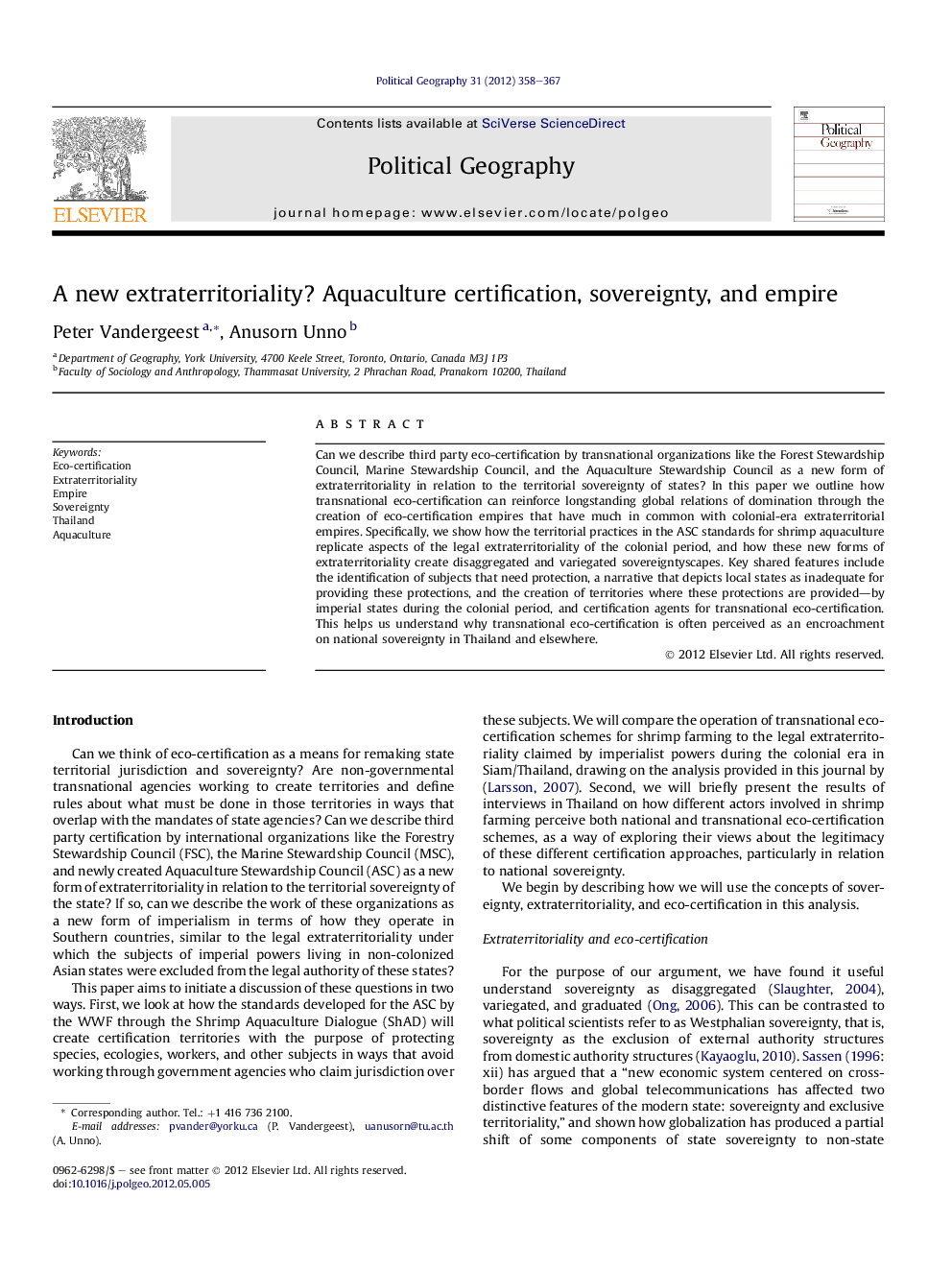| Article ID | Journal | Published Year | Pages | File Type |
|---|---|---|---|---|
| 1062035 | Political Geography | 2012 | 10 Pages |
Can we describe third party eco-certification by transnational organizations like the Forest Stewardship Council, Marine Stewardship Council, and the Aquaculture Stewardship Council as a new form of extraterritoriality in relation to the territorial sovereignty of states? In this paper we outline how transnational eco-certification can reinforce longstanding global relations of domination through the creation of eco-certification empires that have much in common with colonial-era extraterritorial empires. Specifically, we show how the territorial practices in the ASC standards for shrimp aquaculture replicate aspects of the legal extraterritoriality of the colonial period, and how these new forms of extraterritoriality create disaggregated and variegated sovereigntyscapes. Key shared features include the identification of subjects that need protection, a narrative that depicts local states as inadequate for providing these protections, and the creation of territories where these protections are provided—by imperial states during the colonial period, and certification agents for transnational eco-certification. This helps us understand why transnational eco-certification is often perceived as an encroachment on national sovereignty in Thailand and elsewhere.
► We show how transnational eco-certification parallels colonial-era extraterritoriality. ► Eco-certification agents claim rule-making authority in certification territories. ► Like extraterritoriality, transnational eco-certification claims to protect valued subjects. ► Transnational eco-certification is also justified by a narrative of an inadequate state. ► These parallels help explain strong resistance to eco-certification in Thailand.
